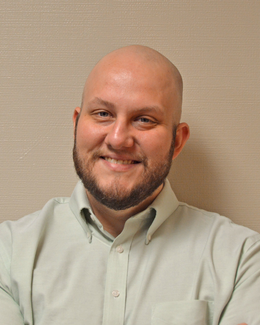Glad to be back on the blog - sorry for the hiatus! Make sure to check out the blog archives for plenty of material.
Interviews are the front line for your company. It's amazing to me how many people know and understand that, yet struggle so much with executing an effective interview.
The numbers about effective interviews are very clear:
No interview: ~25-30% success rate
Unstructured interview: ~30-40% success rate
Structured interview: ~50-55% success rate
Structured interview and assessment: ~70-80% success rate
I'm not going to spend any time talking about assessments (I have written in detail about how useful they are and how to use them when hiring), but I am going to talk about structured interviews.
What is a structured interview?
The primary characteristic of a structured interview is forethought - hence structured. You ave thought about the interview beforehand. More than that, you've thought about the job and the needs of the job, your company culture and values, and what the ideal candidate would look like.
The other aspect of a structured interview are the questions. You want to ask each potential hire an identical bank of questions that revolve around the behaviors of the job ('behavioral based interviewing' it is sometimes called). Not every person needs to be asked the exact same set of questions down to the letter, but there should be a set of 'core questions' that every applicant answers.
What questions should I ask?
This is particular to the job, but I'll give you some basics and why I like to ask them:
General
1) Talk to me about your life up to this point: I'm listening for what this person values, what they consider their highest accomplishments and key experiences, and I'm sketching out a general behavioral profile.
2) Tell me about your greatest success at work: How did you start the process? Was it a team effort or individual? Was it technical or interpersonal? What resources did they use? Where there any difficulties? If so, how did they overcome them?
3) Tell me about the biggest challenge you faced/what was your greatest failure?: How someone talks about challenges and failures will tell you a great deal about them. How did the challenge come about? What mistakes did you make in the process? What did you learn - about yourself and others?
Job Specific
These questions are based on what the job needs from a behavioral perspective:
1) Problems:
Tell me about how you successfully solved a difficult problem. I'm listening for an indication to how they will work with my people, myself, and my customers. On one side, they might be very competitive, aggressive, and challenging, on the other they might be collaborative and patient.
2) People:
Give me an example of a time when you persuaded someone to your viewpoint. Again, I'm listening for how they will work with my people, myself, and my customers. They might be friendly, optimistic, and gregarious, winning people over with charisma and enthusiasm. Conversely, they might be more logical and systematic, and achieved the win through tight logic and analysis of the benefits for the other person.
3) Pace:
Walk me through a day in your ideal job. Some people will say something like 'I love to come into the office, work on my list throughout the day, and have a regular routine.' Others might say, 'I love variety and flexibility, meeting with different people who have different needs.' As the workplace becomes more competitive and executives are pushed to move faster and faster, a person's preferred pace is becoming more and more important to look for.
4) Procedures:
Explain a system or process you've created. As before, some people work great under systems. They love procedures and processes - because they are predictable, or they minimize risk, or they facilitate a high quality product every time. Others chafe under rules and procedures - because they stifle creativity, prevent risky (but sometimes necessary) moves, and limit independence.
Hopefully you can see why it is so important to have a good understanding of what the job needs.
Wrap-up
I first learned about interviews in high school. My teachers began telling me how to prepare, what questions people will ask, and how to respond to them. And it isn't just me: an entire generation of people are familiar with interviewing, and know exactly what to say.
Our old model will have to adapt in order to get the right people. A structured, behavioral based interview will help you get the right person the first time - saving you time and money.
Connect with us today for more information.

